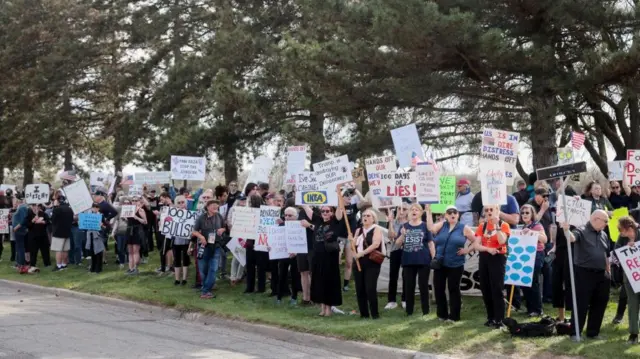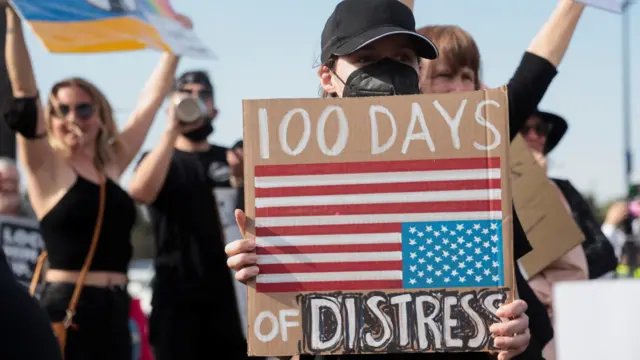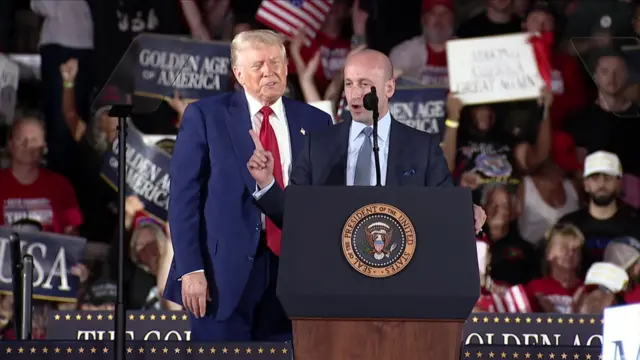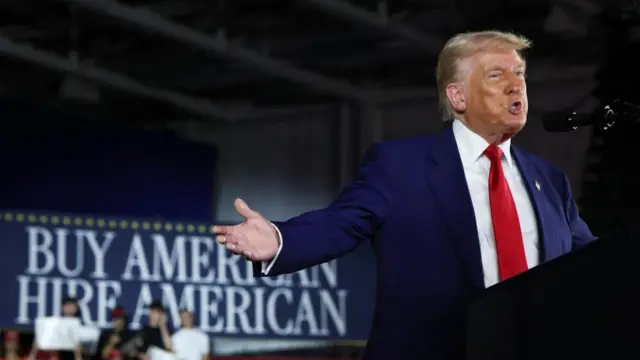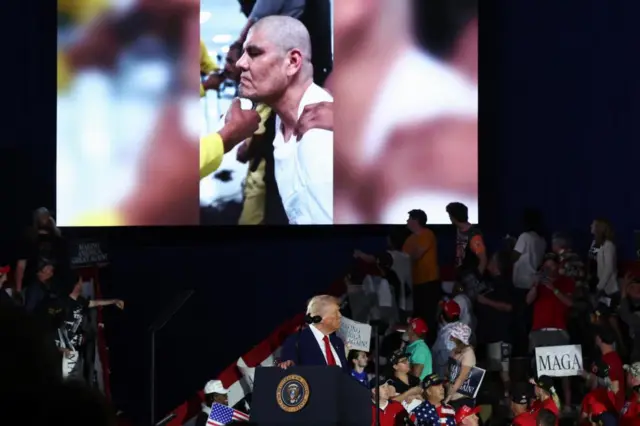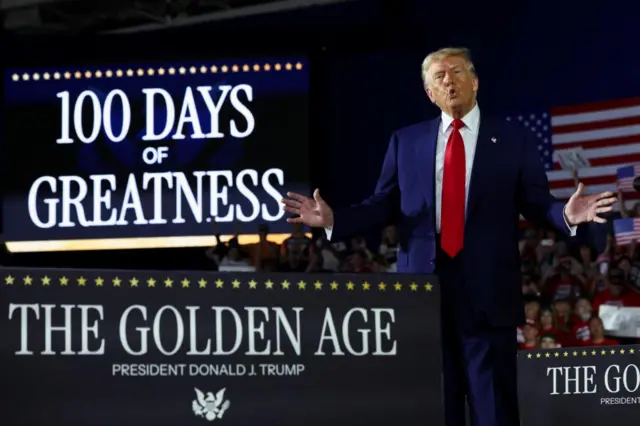That's a wrap on Trump's first 100 days in officepublished at 01:24 BST 30 April
 Sakshi Venkatraman
Sakshi Venkatraman
Reporting from New York
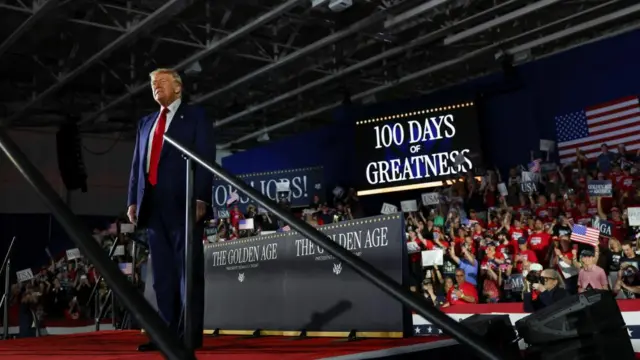 Image source, Reuters
Image source, ReutersWith that speech in Michigan this evening, President Donald Trump's 100th day in office is coming to a close.
He's had a busy day, most of it spent in Michigan, one of the swing states he likes to remind detractors that he won in last year's election.
He used the traditional presidential milestone to focus on several of his favourite topics, such as defence, immigration and the economy.
Trump spoke earlier to Michigan National Guard troops alongside Defence Secretary Pete Hegseth. He promised to invest in their base and get them new fighter jets.
At this evening's rally commemorating the day, he emphasized the rapid changes he's made to the US since taking office - and he has indeed hit the ground running with those changes.
Trump's first 100 days have been marked by a sweeping use of presidential powers to make major moves: tariffs on imports, slashing programmes such as the international development agency USAID, face-offs between the executive and judiciary branches and implementing his campaign promise of mass deportations.
Many supporters say they welcome these moves as fulfilling Trump's pledges to voters. But 100 days in, opinion polls suggest many critics are worried about the direction the country is going in.
We're closing this live page for now, but you can read more about what Trump has done in his first 100 days - and what he hopes to do with the rest of his presidency below:






